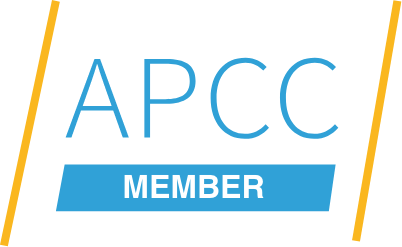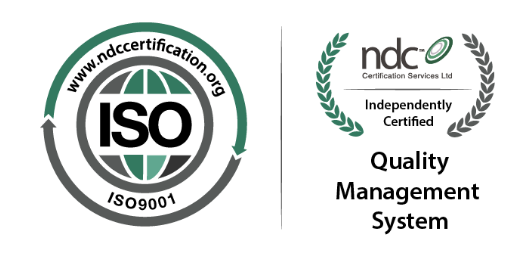How We Can Help > Our Approach > Proposition
How does our Firm's Proposition benefit Clients, Shareholders and Employees?

Why do we need to look at our business model & proposition?
The problem:
With regulations like Consumer Duty, PROD and SM&CR, firms must show they can monitor and deliver intended positive outcomes for a defined target market. If things go wrong, firms must trace issues back to accountable individuals and be able to show they took reasonable steps to prevent foreseeable harm.
To meet these obligations, firms need propositions that ensure suitability, value for money and good conduct. The client proposition is like a human spine - if poorly positioned, it can cause widespread pain, the root cause of which can often be misdiagnosed.
By improving the proposition strategically, firms can address multiple conduct issues.
It is easy to see that new regulations give firms the opportunity to strengthen their propositions, ensuring they deliver value and good outcomes.
Therefore, we help you address the question:
How can we ensure our Proposition benefits all of our stakeholders?
Adopt a blended pricing model
Understand your Target Market:
Create meaningful client segments:
Introduce a plan-based approach
Comfortably meet the ‘price and value’ outcome of Consumer Duty
We advocate that the best way to seize on the opportunity presented by The Consumer Duty is to move from a pure “assets under advice” ad-valorem pricing model (currently the status quo for financial advisory firms) to a blended pricing plan-based offering for the following reasons:
1. Blended pricing separates acquisition, service and value costs, demonstrating charges match effort and expenses to acquire and service clients.
2. Goal based financial planning, as ‘the plan’ (and the peace of mind it brings) is the primary value exchange between the advice firm and its clients. When linked with a client segmentation model, it addresses price/value better than ad-valorem models, allows new revenue streams and lets firms rethink charging after a generation.
Engage external subject matter (marketing) specialists to help identify, understand and document the needs of your ideal target market
A lot of firms define their target market too simply - mainly by investable assets and lifestage. However, this is just a commercial threshold, not a true target market. A better approach defines the target market by your clients’ needs and goals, like 'individuals requiring support to achieve financial independence.' Further segmentation by needs, objectives and preferences is key.
Too few firms engage marketing experts to help identify and document their ideal target's needs.
Therefore, there is a real opportunity to better understand and serve your target market. To do this, we advocate engaging independent external specialist support and inform the Product Governance Framework and broader proposition offering.
Engage external subject matter (marketing) specialists to help identify, understand and document the needs of your ideal target market
Client Segmentation is an essential component of the Target Market and where a more granular approach can inform and shape factors such as pricing and communications, so they are better suited to each of your clients.
There can be some confusion between the terms ‘target market’ and ‘client segmentation’. In our experience, many firms have found it difficult to articulate how they segment the clients within their target market. For example, target market could be described by the collective need, whereas client segmentation allows you to divide the target market into smaller groups based on specific needs, behaviours and other attributes
For example, in terms of cost to the customer, someone who needs to establish a complex plan will be charged more and experience a different journey than someone who has a simple plan and requires limited hand-holding. Similarly, the nature of their annual service review and the communications they receive will be different.
We advocate the adoption of a client segmentation model that informs the costs a customer will be charged, the journey that they follow, the way in which advice is delivered to them and the way in which the communications are structured.
The key to achieving conduct culture is aligning the interests of all the stakeholders / interested parties. A plan-based proposition does this. Think Win, Win, Win for the business, client, and regulator.
When taking the plan-based approach, firms are able to build a clean and resilient brand. The client is signed up to a branded plan (e.g., Financial Freedom Plan ©) that is underpinned by branded brochureware, a consistent customer journey supported by key tools (ATR, Cash Flow Planning etc) and a clear, consistent, and simple correspondence style.
A proposition underpinned by a holistic plan also allows the firm to dilute the influence of and reliance on individual advisers and shifts the trust and loyalty back to the brand and the proposition.
We advocate plan based financial planning as the plan (and the peace of mind it brings) is the primary point of value exchange between the advice firm and its clients. When linked to the client segmentation model it addresses the Price and Value Outcome in a way that a simple ad-valorem model cannot. It also allows Advisory firms to review their charging model for the first time in a generation.
Interested in addressing the pressure points in your business?
“Exceeds expectations. It has been invaluable to have you on hand to provide technical and practical guidance to assist my client. You also provide very helpful views on industry best (and worst) practice which we have been able to leverage. I would recommend Conduct Culture for other projects in the future.”
Lilian Small
Temple Bright LLP
See how we can help you deliver better outcomes by addressing the other key pressure points:
People
How can we ensure that we have the right people to achieve our goals?
Data
How can we materially reduce our operational costs without adversely impacting the effectiveness of our control environment?
Governance
How can we manage the conduct risks in our business without getting distracted from managing our business?
Accreditations:




Connect with us
Privacy Policy
Cookie Policy
Website Terms & Conditions
Conduct Culture. © 2023 All rights reserved.
Conduct Culture Ltd is a limited liability company incorporated in England & Wales with registered number 11955911.
Our VAT number is GB 327379576.
Quick Links
- Home
- Who we are
- Our Approach
- Our Services
- What we think
- Connect with us
- Connect with us on LinkedIn
